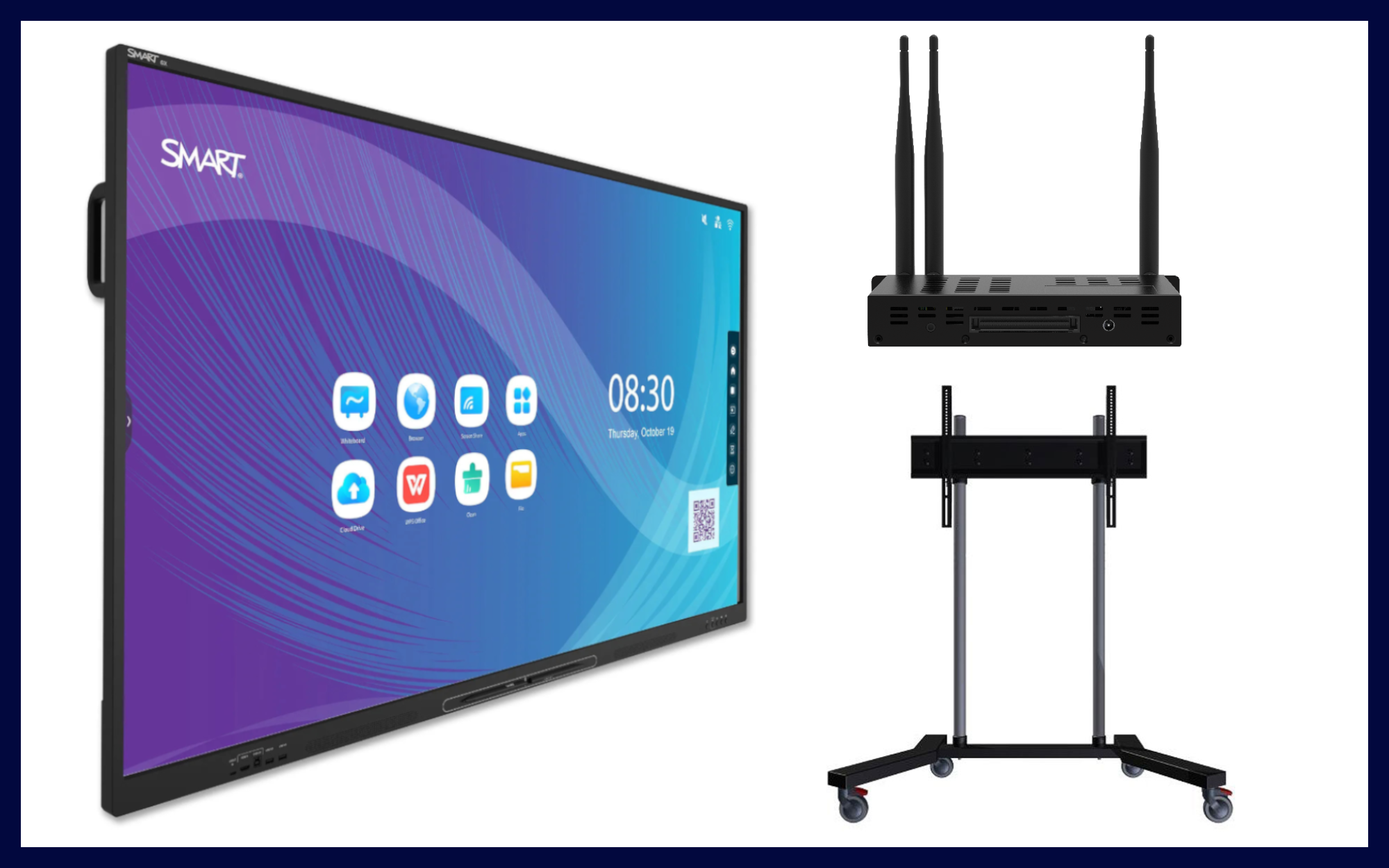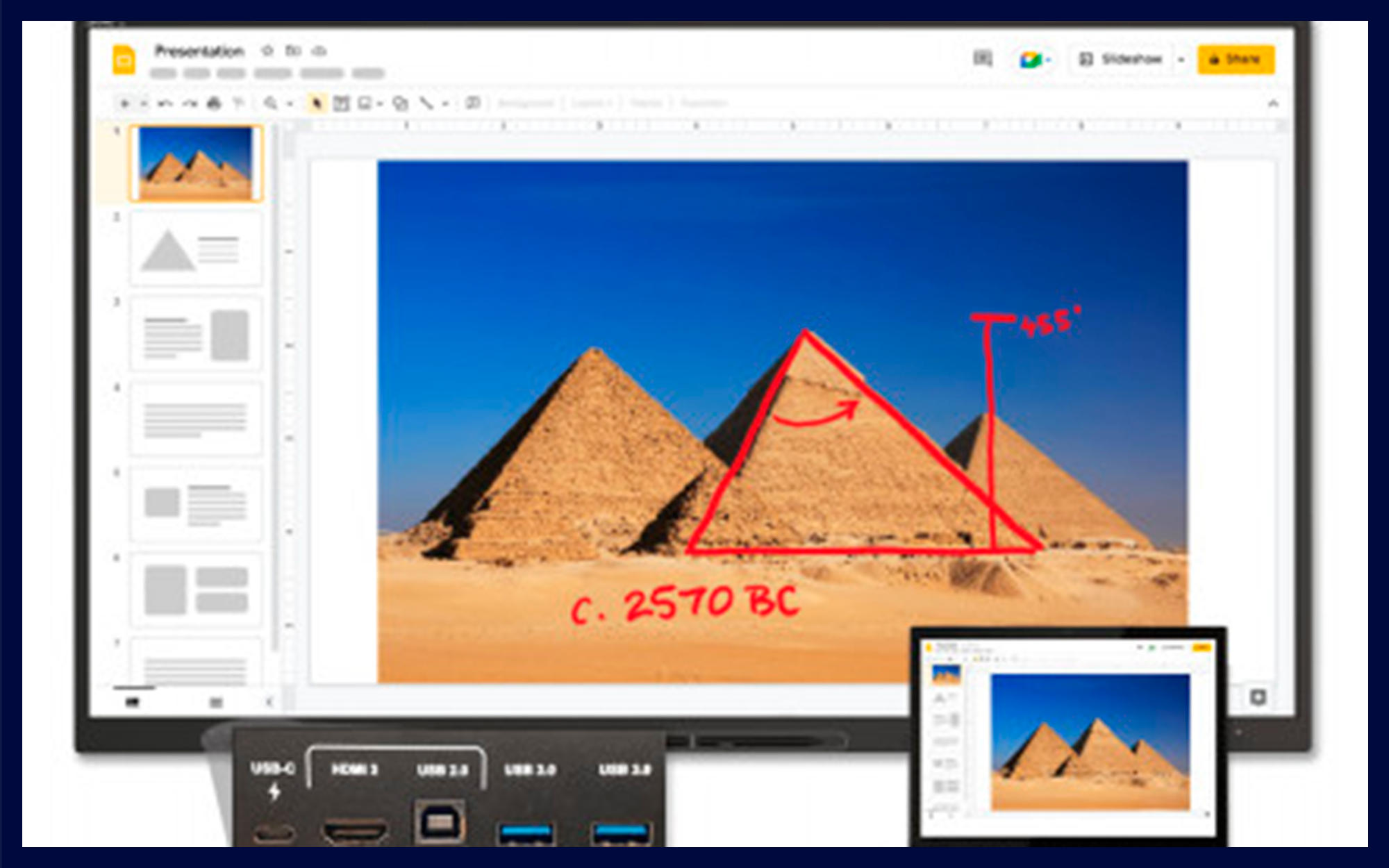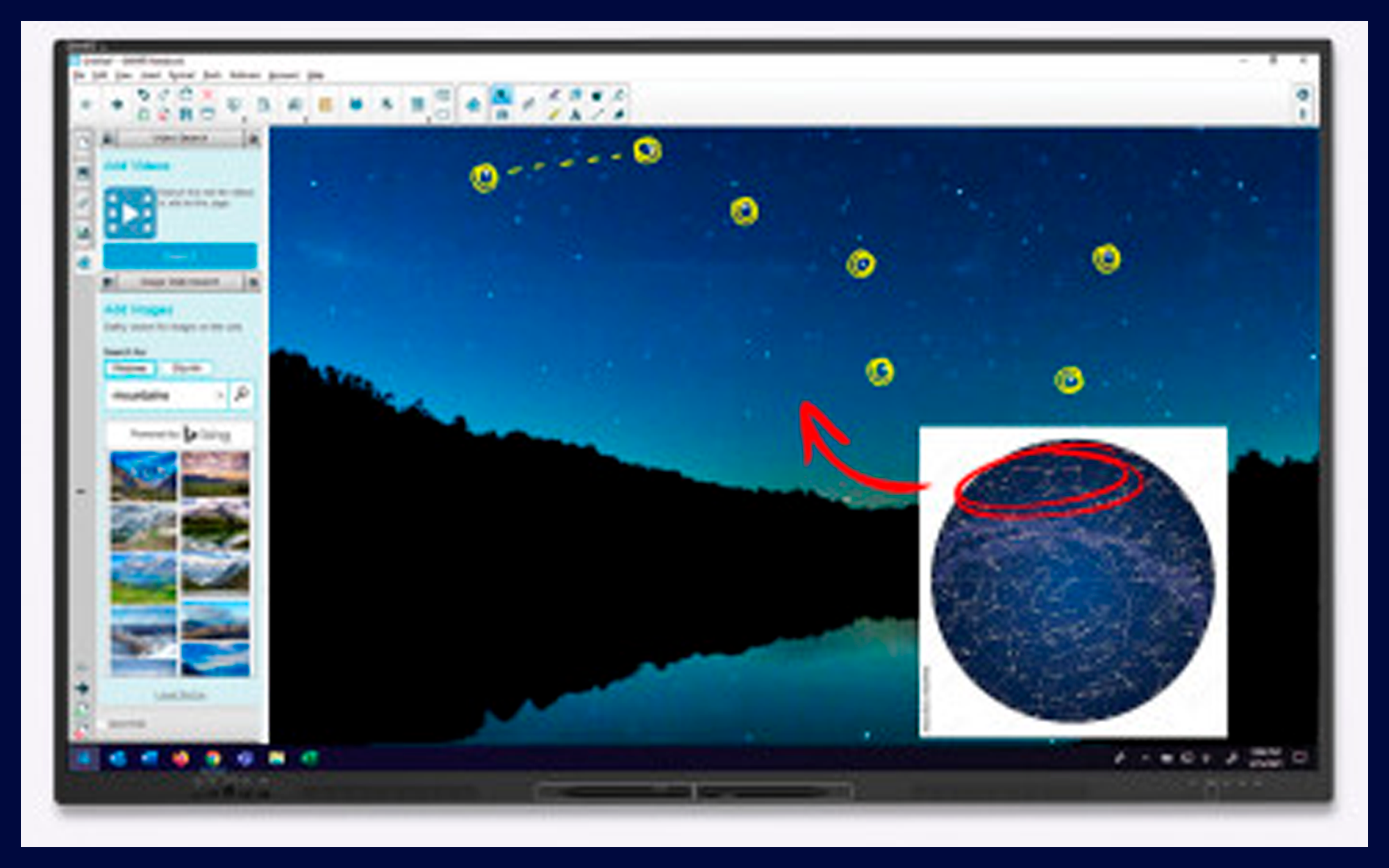Interactive digital screens
Compilation of applications and games for use on interactive digital whiteboards and training in their use.
General description of the project
Collection of educational applications and games adapted for interactive digital whiteboards, facilitating learning and access to information. In addition, training sessions are provided to optimize their application in therapeutic and educational activities.
The selection of content was carried out taking into account the needs of professionals and users, ensuring that each application contributes to the development of cognitive skills. Accessibility options such as pictograms, voice narration, and simplified texts were also configured.
Technical breakdown of the project
The interactive digital screens project aims to enhance learning and stimulate cognitive and social skills through adapted technology. Each center is equipped with selected and configured devices to offer an accessible, intuitive, and motivating experience for all users. This subproject can be divided into two sections.
The first section focuses on the selection and adaptation of equipment. The Smart Board GX165-v3 65-inch screens were chosen to ensure optimal image quality and smooth touch interaction. To promote accessibility and ease of use, motorized mounts were installed, allowing the screen height to be adjusted according to users’ needs. In centers that already had screens, an OPS module was added to expand the device’s capabilities and improve its interface, making it more intuitive and easier for professionals and users to operate.
The second section focuses on the selection of digital content. Each game and application was individually analyzed by the therapeutic team, considering its accessibility features and potential to develop cognitive and social skills. This review allowed for the selection of experiences that are not only motivating and interactive but also adapted to users’ abilities, ensuring that each activity contributes to comprehensive development and inclusion within the centers.
Team
- Dr. Manuel Francisco González Penedo, computer engineer, LIA[2] research group
- Paula de Santos Dorrego, occupational therapist, TALIONIS research group
- Raúl Fraiz Gómez, occupational therapist
- Manuel Lagos Rodríguez, computer engineer, TALIONIS research group
- Jorge Rivadulla Brey, computer engineer, TALIONIS research group
- Iago Fernández Garrido, computer engineer, TALIONIS research group





